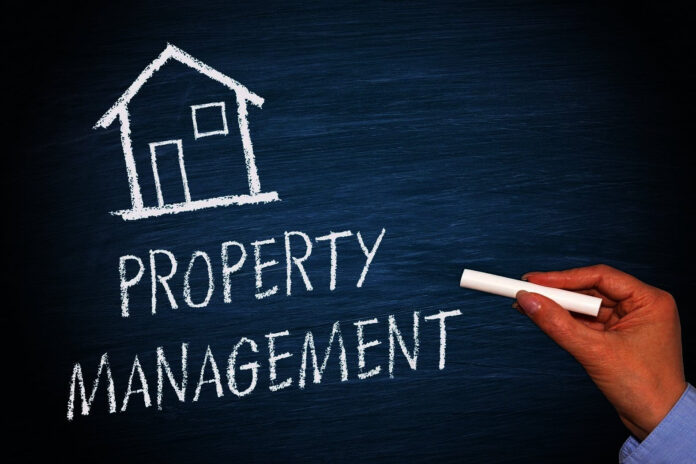In the world of real estate, property management companies play a pivotal role in bridging the gap between landlords and tenants.
These entities take on the responsibility of managing day-to-day operations, maintenance, tenant relations, and financial aspects of properties. But, how much does this convenience cost? Let’s explore the factors that influence the charges of companies, making this complex topic easily digestible.
Understanding the Fee Structure

The fee structure of companies can vary widely, influenced by several factors. Property owners must grasp these variations to make informed decisions.
Fixed vs. Percentage-Based Fees
Some companies opt for a fixed monthly fee, offering predictability. This fixed rate is straightforward but does not always correlate with the income or the manager’s workload.
Conversely, percentage-based fees align more closely with the performance, as the fee is a portion of the monthly rental income. This model motivates managers to maintain high occupancy rates and rental prices.
Additional Charges
Beyond the base fee, companies may impose additional charges for services like tenant placement, maintenance work, and administrative tasks. These extra fees can significantly affect the overall cost to the owner. It’s important to review these charges carefully in the contract to avoid any surprises.
Factors Influencing Costs

Several factors can influence the costs charged by companies. Understanding these can help property owners budget more accurately and choose the right Property Management Service for their needs.
Property Type and Size
The type and size are significant factors. Managing a multi-unit apartment complex requires more effort and resources than a single-family home, leading to higher fees. Larger properties or those with more amenities also demand more management, further increasing costs.
Location and Market Conditions
The location and the prevailing market conditions can impact management costs. Properties in high-demand urban areas might incur higher fees due to the increased workload and market rates. Similarly, areas with higher living costs can translate to more expensive services.
Level of Service Required
The scope of services needed plays a crucial role in determining costs. Full-service property management, which includes comprehensive services from tenant screening to maintenance, commands higher fees.
Owners seeking only specific services may negotiate lower costs but should weigh the benefits against the potential for increased responsibilities.
Scope of Services
When considering a company, the first aspect to evaluate is the scope of services offered. This encompasses the range of tasks the company will handle on behalf of the owner.
Comprehensive vs. A la Carte Services
Enterprises typically offer a range of service packages, from comprehensive management solutions to more limited, a la carte options.
A full-service package might include marketing the property, screening tenants, collecting rent, handling maintenance and repairs, and managing tenant relations. In contrast, a la carte services allow owners to select specific tasks they want the company to handle, which can significantly affect the overall cost.
Customization and Special Requests
The ability to customize services to fit specific needs can also influence pricing. Property owners may have unique requirements or special requests that go beyond standard tasks.
For example, managing a property with unusual features or providing enhanced security measures may incur additional costs. The degree of customization required can therefore have a significant impact on the final price.
Financial Management and Reporting

An often-overlooked aspect of parcel management is the financial management and reporting services provided by the company. This includes collecting rent, managing the property’s budget, and producing financial reports.
Importance of Accurate Financial Management
Accurate financial management is vital for maintaining the profitability of a property. It involves meticulous tracking of income and expenses, ensuring rents are collected on time, and managing the budget for repairs and maintenance.
A company that excels in financial management can significantly enhance the property’s financial performance.
Reporting and Transparency
Transparency in financial reporting is crucial for property owners to understand the financial health of their property. Detailed monthly or quarterly reports that include income statements, expense reports, and cash flow analyses provide property owners with the insights needed to make informed decisions.
The quality and frequency of these reports can influence the management fees, as more detailed and frequent reporting requires more resources.
Legal Compliance and Risk Management

Staying compliant involves understanding and adhering to laws related to tenant rights, fair housing, safety regulations, and more. Firms with expertise in legal compliance can mitigate the risk of legal issues, which can be costly and damaging to the property’s reputation.
Risk management is another critical service offered by companies, involving identifying potential risks and implementing strategies to minimize their impact.
This includes everything from ensuring proper insurance coverage to implementing safety protocols. Companies that offer robust risk management services might charge higher fees, reflecting the added value and protection they provide.
Technology and Innovation
The use of technology in property management can significantly impact efficiency and service quality, affecting the overall cost of services.
Corporations that invest in technology, such as software, online tenant portals, and mobile applications, can offer more efficient and responsive services.
This technology can streamline operations, from tenant communications to maintenance requests, potentially reducing costs for parcel owners.
Innovative practices, such as virtual tours for potential tenants or the use of smart home technology in property management, can enhance the tenant experience and increase the property’s appeal.
Companies that offer these innovative services might charge more, but they can also provide a competitive edge in the rental market.
Tenant Relations and Retention

Effective tenant management is crucial for maintaining a high occupancy rate and ensuring steady rental income. The quality of tenant relations can significantly influence the property’s reputation and tenant retention rates.
Enterprises that prioritize excellent tenant relations can contribute to a positive living environment, leading to higher tenant satisfaction and retention.
This involves responsive communication, timely resolution of issues, and tenant engagement activities, which can be resource-intensive but are crucial for long-term success.
High tenant turnover can be costly and disruptive. Companies that excel in tenant relations and retention strategies can reduce these costs, providing value that justifies higher management fees.
The ability to maintain a stable and satisfied tenant base is a significant advantage that can offset higher management costs.
Conclusion
Property management companies offer valuable services, but their costs can vary based on several factors. Parcel owners should consider these variables to ensure they choose a service that aligns with their needs and budget.
By understanding the fee structures and the factors influencing costs, property owners can navigate the complexities of property management with confidence, ensuring a profitable and hassle-free investment.










